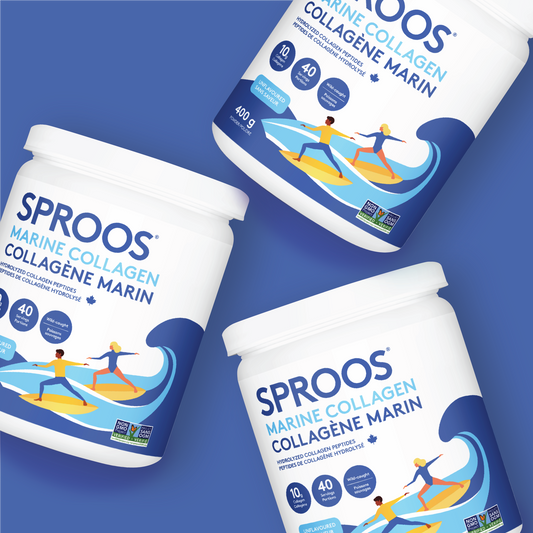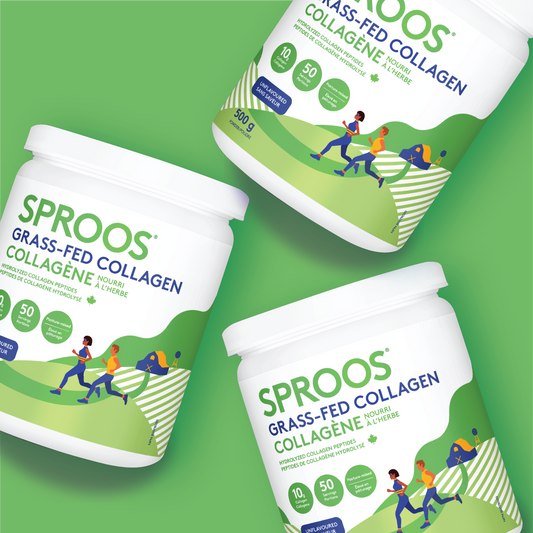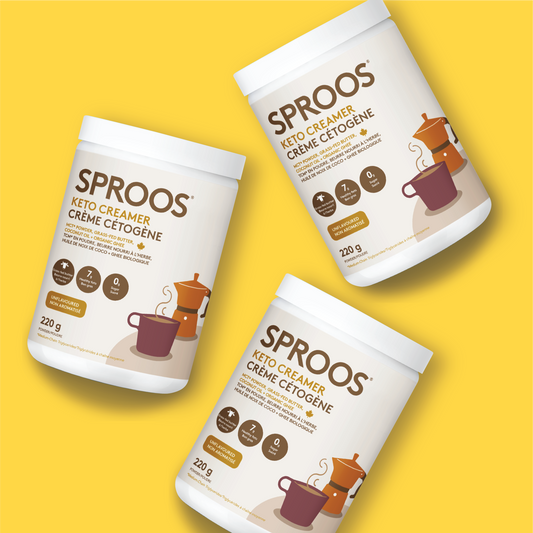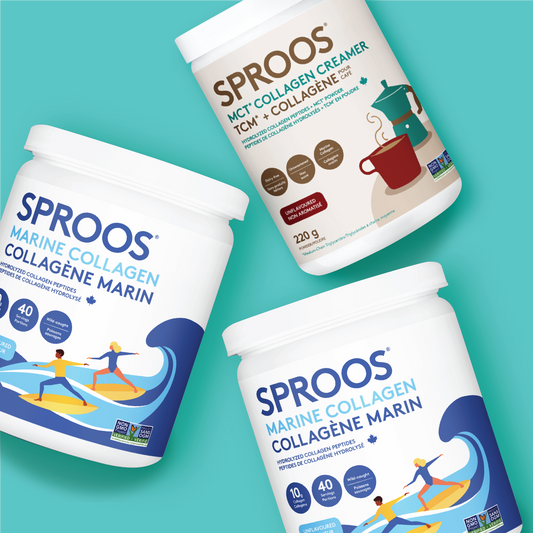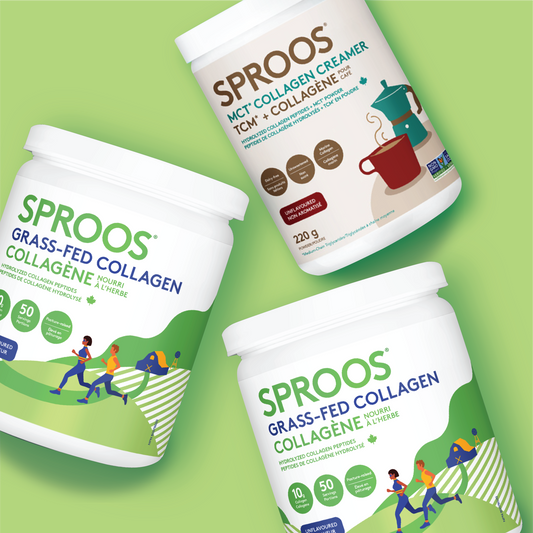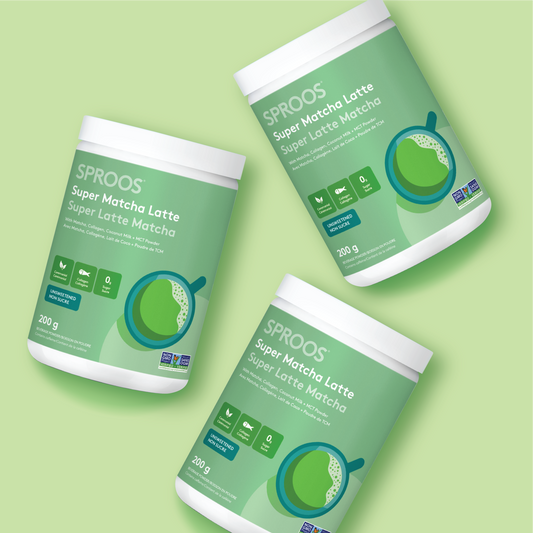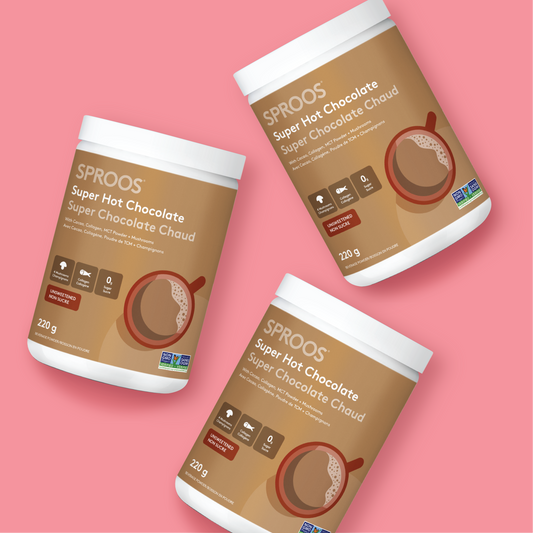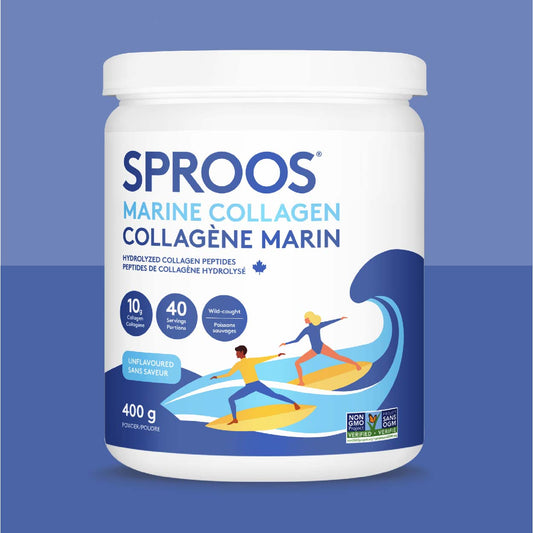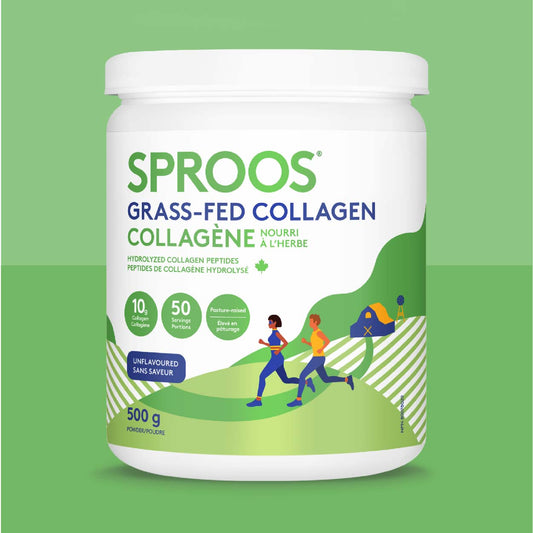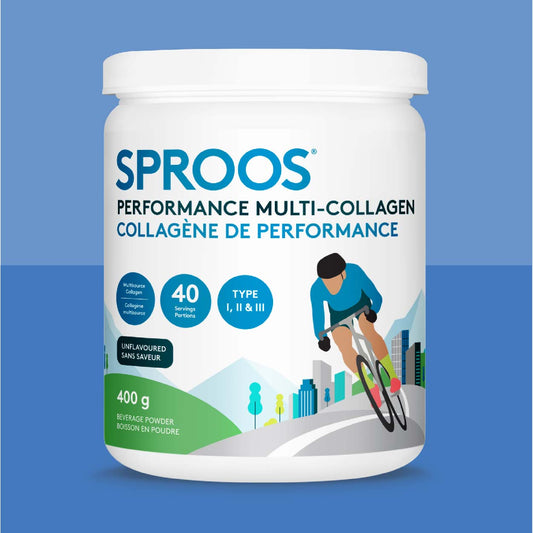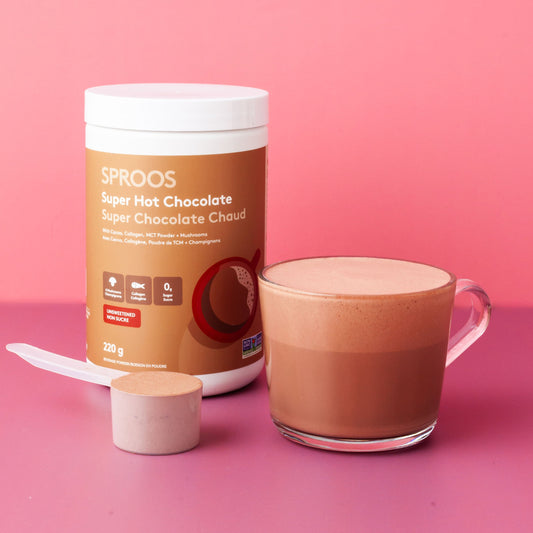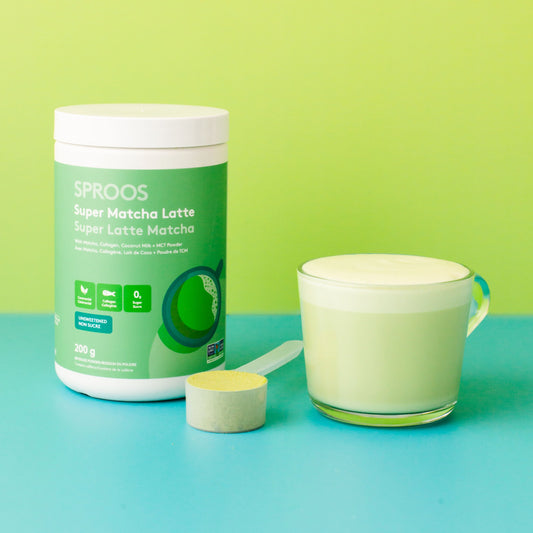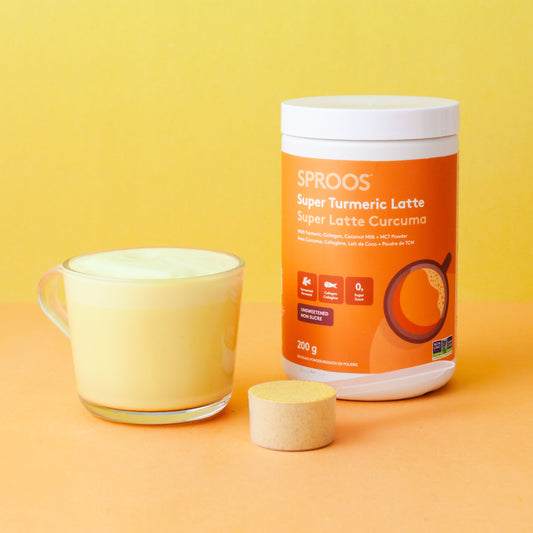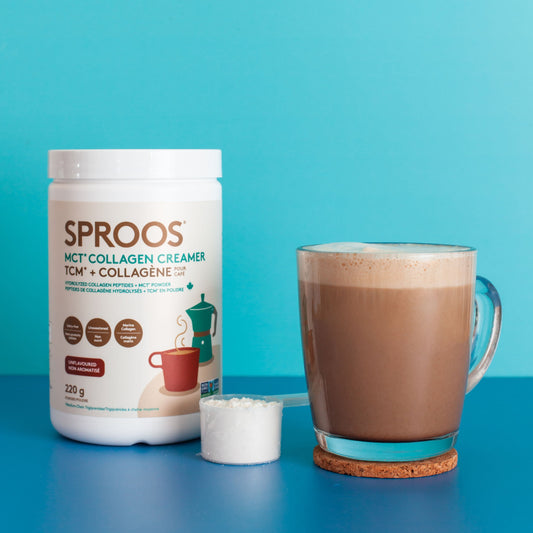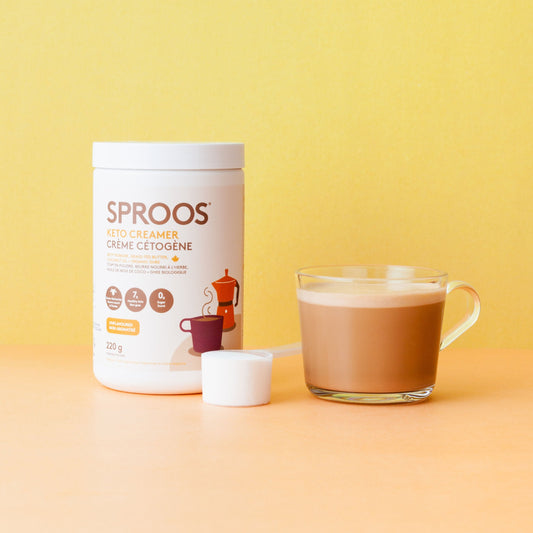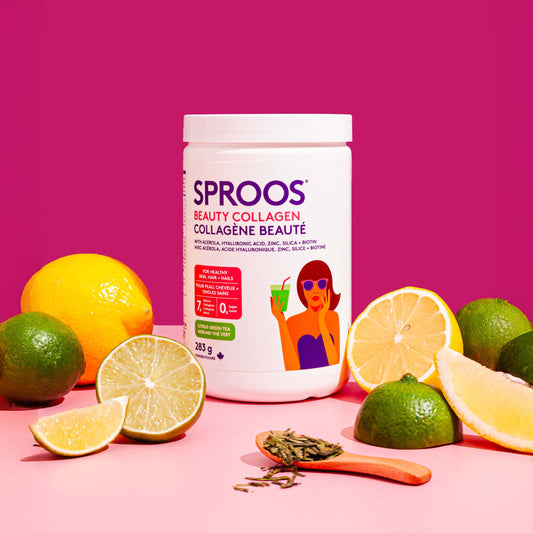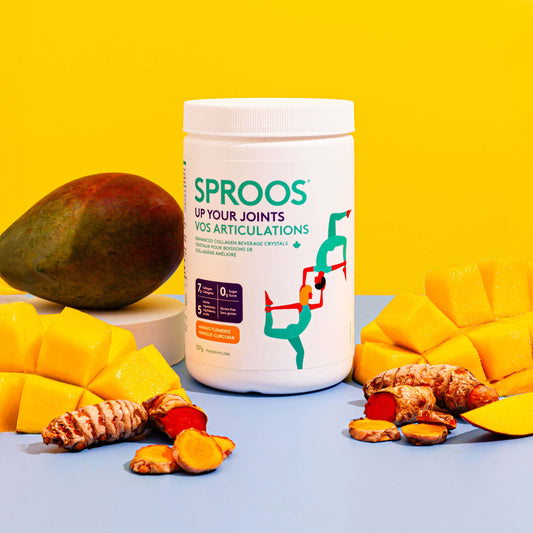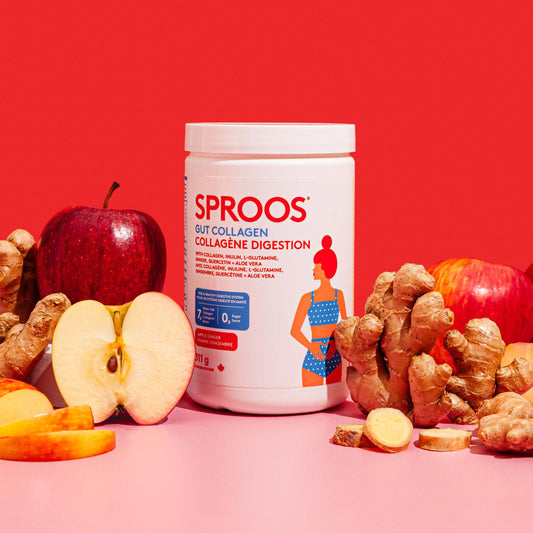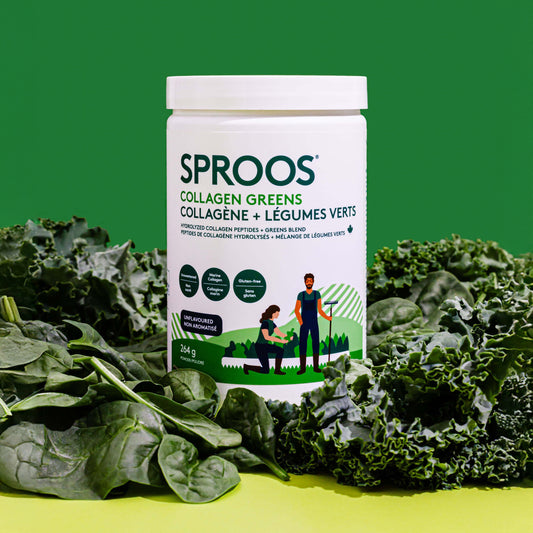First things first, what is collagen? Collagen is the most abundant protein found in the body. It plays an essential role in our skin, connective tissues, joints and cells.
As we age, our natural collagen levels start to decline. This is a natural process that can be attributed to many signs of aging such as loss of skin elasticity and joint pain. Getting enough collagen in our modern Western diets can be tricky. Luckily for us, science shows the effectiveness of collagen supplements. Improvement in skin elasticity, joint pain, digestion and inflammation are all proven benefits. Studies also show collagen can support athletes with joint, injury and recovery support.
Now, let's dig into the most recent research!
Can Collagen Improve Body Composition?
Athletes take collagen for joint support, but can taking collagen improve body composition? Supplements like protein powders and branched-chain amino acids are popular in active individuals. They have the ability to improve body composition and preserve lean body mass.
So, a study conducted in Germany wanted to investigate whether collagen could do the same. They tested if collagen supplementation in active men performing regular resistance training could affect their body composition, strength and/or muscle fibers. The researchers conducted a twelve week, randomized double-blinded placebo-controlled study. Fifty-seven young men received either 15 g of collagen or a placebo per day. Both groups performed resistance exercise training three times a week. Body composition, strength and muscle fibers were measured before and after. The collagen group showed a significant increase in lean body mass compared to the placebo group. Additionally, body fat mass did not change in the collagen group, unlike in the placebo group. Both groups showed a significant increase in strength. But, the collagen group showed a slightly higher effect. Both groups showed a significant increase in muscle fibers. This was a study first of its kind to look into collagen's ability to improve body composition. What does this mean? Based on the findings, active individuals should be including collagen into their diets. Not only for its well-known joint support, but to also improve body composition and strength.
What About Body Composition in Women?
The first study proved that collagen can improve body composition in active men. Do these results translate to women too? Most subjects of supplementation and resistance training studies are men or post-menopausal women.
A recent study is unique as they focused on premenopausal women. Protein metabolism and muscular response following resistance training are believed to be the same in both men and women. But, since women have lower total muscle mass, the results tend to be less significant. The researchers conducted a twelve week, double-blind placebo-controlled study. Seventy-seven premenopausal women received either 15 g of collagen or a placebo per day. Both groups completed resistance training three times a week. The collagen group had a significant increase in lean body mass and hand-grip strength, compared to the placebo group. The collagen group also had a significantly higher loss in fat mass. There wasn't a significant finding when it came to leg strength. With similar results to the first study, taking collagen supplements improves body composition in premenopausal women.
Protein supplements are great for supporting fitness when it comes to body composition. Based on the latest research, collagen is one supplement that should be included into rotation.
Is There Such a Thing as Too Much Collagen?
In order for a protein to be a "complete" protein, it must contain all nine essential amino acids. Essential amino acids are amino acids that we must get from our diet since the body cannot create them. This makes them "essential" to eat. Not every source of protein consumed has to contain every essential amino acid. But it is important to maintain a healthy amino acid balance throughout the day for optimal health.
Collagen is not recognized as a complete protein as it's missing one essential amino acid. This amino acid is tryptophan. Although collagen does not contain tryptophan, the average diet is in surplus of it.
A recent study investigated how much collagen can be taken while still maintaining a healthy amino acid balance. The study found that as high as 36% of collagen peptides can be included into the diet. This means that 36% of your dietary protein can come from collagen while still meeting amino acid requirements. To size that up, it's recommended that a person consumes 0.8 g of protein per kilogram of body weight. For example, an adult female who weighs 65 kg (or 143 lbs) needs about 52 g of protein each day. According to the study, this adult woman could consume 18 g of collagen per day. Health Canada recommends up to 10 g of collagen per day which is way below the threshold found in this study. So enjoy your collagen folks!
The Takeaway
Collagen is a great addition to your daily diet in both men and women, especially if you are active. Collagen has been found to improve lean body mass and strength in active individuals. Although not officially a complete protein, collagen is a great source of protein in a healthy, balanced diet. So whether you're looking to supplement your active lifestyle or increase your dietary protein, Sproos' collagen products are a great way to get your daily dose.

|
Carly ChagasSproos Brand ManagerWith a passion for food and wellness, Carly has worked in the natural food industry over the last few years specializing in marketing. She holds a Master of Science (MSc) degree in Human Health and Nutritional Sciences and continues to work to combine her passion and education at Sproos. Carly lives in Toronto and when she’s not working, she can be found out and about the city with her dog, Lilly, or hitting up a yoga class. |


